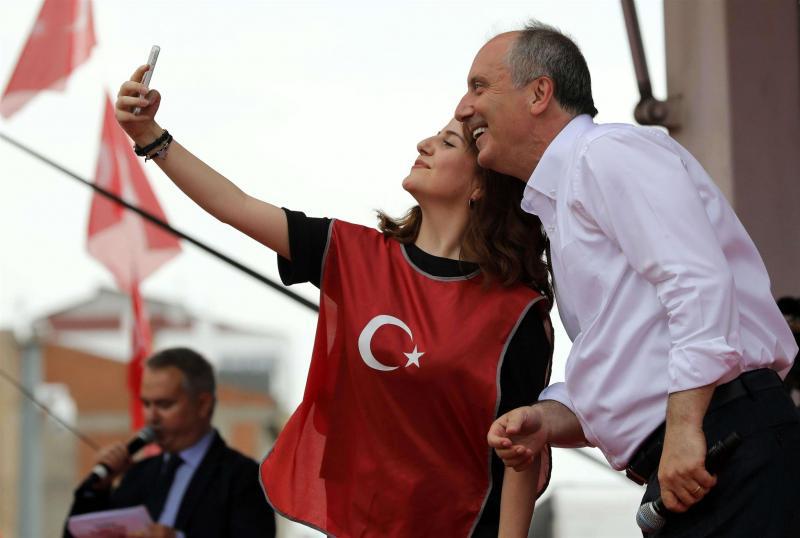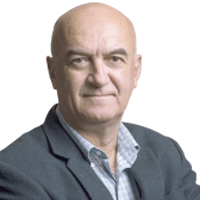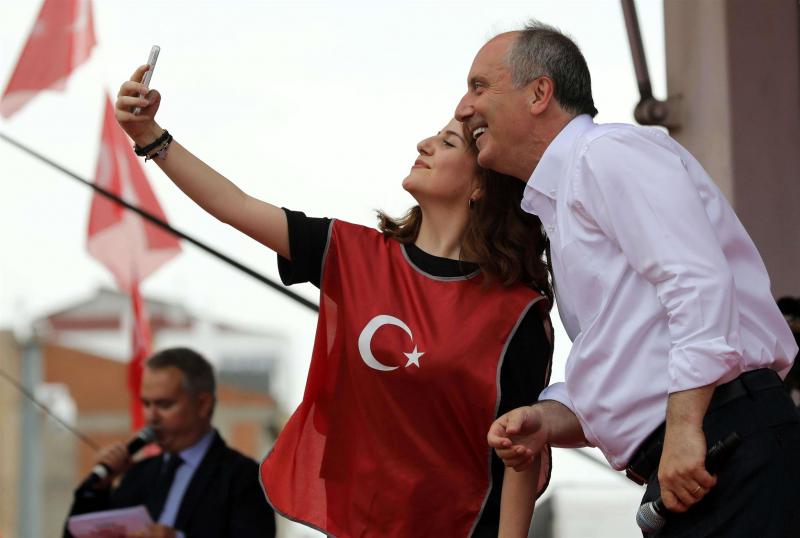With media cheerleading him fully, Erdogan hopes to win
It is becoming more apparent than ever that the Turkish media are nothing but a self-censoring machine. On May 11 in Dublin’s City Hall, Irish human rights organisation Front Line Defenders named respected Kurdish journalist Nurcan Baysal its Global Laureate for Human Rights Defenders at Risk for 2018.
The ceremony and Baysal’s award, presented by UN Deputy High Commissioner for Human Rights Kate Gilmore, is important news for the public. But it went largely uncovered by Turkey’s mainstream media. The explanation is simple: Seized by sheer force of power, few dared to publish an unpleasant story that could infuriate Turkish President Recep Tayyip Erdogan and his government.
After the ceremony, which I also attended, I smiled bitterly and told foreign guests, who wondered if the event would be covered in Turkey, that with the exception of a handful of tiny online news outlets, the event would be completely ignored.
Baysal, addressing the elite crowd in Dublin’s City Hall, spoke of the Turkish government’s ongoing crackdown on dissidents and activists.
“Do I look like a terrorist?” asked Baysal. “Today in Turkey, academics, students, journalists, teachers, doctors, even wedding singers who criticise government policies, who demand peace and human rights, can easily be declared terrorists… We are being killed, put in prison and forced to leave the country… To demand peace is seen as a crime of terrorism in Turkey. People like me, who demand peace and human rights, are declared terrorists.”
Baysal’s remarks ring true. In Turkey, anyone who expresses even the slightest discontent with Erdogan’s policies is lambasted in the Turkish media. They are given no place in the public domain and condemned to silence, to the exile of voicelessness.
Since it is election time, opposition politicians are beginning to notice the wall separating dissenting opinion from the voters, the wall between the truth and the people. With Erdogan’s insatiable appetite for power, he has resolved to challenge his adversaries by any means necessary in order to stop them from communicating with the masses.
Indeed, the Dublin episode was telling. As my courageous colleague Baysal was finishing her striking speech on human suffering in today’s Turkey, the new proprietors of CNN Turk, a TV channel operating as a joint venture with CNN International, were busy firing their most experienced editors and programme hosts and replacing them with sycophants. When done, Erdogan, with around 95% of the media under his strict control, will be ready to race towards what he hopes to be another sweeping victory in presidential and parliamentary elections next month.
Republican People’s Party (CHP) candidate Muharrem Ince, who stands as Erdogan’s most daring competitor, has noticed this clearly. When he launched into biting criticism of Erdogan at a recent rally in Amasya in northern Turkey, he was told that CNN Turk had joined the other news channels disrupting live coverage of his event.
His temperament matching Erdogan’s, Ince told the crowd that from then on he would begin organising rallies in front of the headquarters of TV stations choosing not to cover him. “I am going to make you pay for this,” Ince hissed, apparently addressing the directors of the state broadcaster TRT, which is publicly financed and whose directors were handpicked by Erdogan’s palace.
Ince knows that potentially dismayed voters stand behind the wall that is built by Erdogan’s media policy. With just over a month left until the historic election day, the question is whether or not the opposition has already lost the vote. Nearly 90% of the electorate receive their news exclusively through TV channels, and a recent public survey showed that the large rural, conservative-nationalist voter bloc neither reads newspapers nor surfs the internet. How much the opposition’s message of excitement and hope circulating on social media will matter remains to be seen. Is it an optical illusion? Nobody knows for sure.
In the midst of such a dense fog, the only issue the opposition can clearly point to is the country’s faltering economy, which can help remind voters of the harsh reality waiting for them around the corner. It signals a tense countdown, with lots of unknowns.
This article was originally published in The Arab Weekly.
Copyright ©2018 The Arab Weekly







